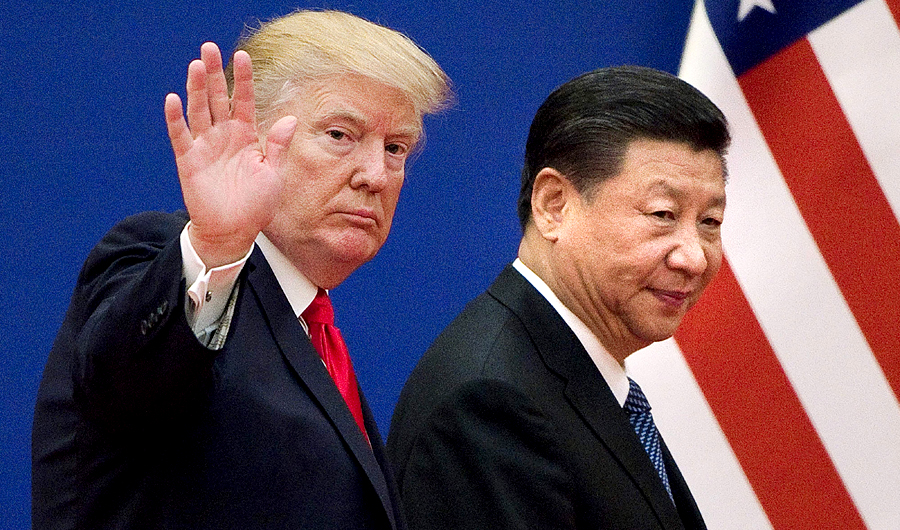US and China: Imperatives of averting a collision

The dinner meeting between Donald Trump and Xi Jinping in Buenos Aires after the G20 summit last week was hugely consequential for determining the course of US-China relations, and hence the shaping of the 21st century world. Irrespective of the results, it is pertinent to analyze the underlying dynamics.
Although the immediate issue is whether a trade war could be averted between the world’s two largest economies, the underlying impulses obliging the US to declare China as a strategic rival and unleash a range of political and military measures need to be understood clearly.
The ongoing US narrative is about China’s rise being at its expense. Since the early 1970s, the US, while warming to Beijing in terms of political relations, sought to condition China as a responsible member of a US-led global order. China conformed to the rules-based order completely: It opened up to the world and utilized the opportunities provided by globalization, free markets and the multilateral system for its own development.
China has also, over the past 40 years, fine-tuned its ideology and its political and economic systems to optimally realize its main strategic priority: Socioeconomic development. It has succeeded in a big way, liberating some 800 million people from extreme poverty in only 30 years and rising to become the second-largest economy in the world.
Western assumptions that, with growth and development, its political system would unravel have not materialized. China has rejigged its governance philosophy to suit its national interests. This reflects the vision and sagacity of the Chinese leadership and people. China is not a newly born nation but a civilization with a marvelous history of some 5,000 years. What we are witnessing is a verifiable renaissance of the ancient and glorious Chinese civilization.
Modern China is not interested in imposing its political system or values on others and it has not transgressed beyond its own cultural confines. In that sense, it does not have an imperial past or any future expansionist objectives. Issues relating to the South China Sea could be resolved peacefully by contending parties, but the US is not a direct party to these disputes. The Chinese method of assuring its national security in these strategic waterways offers no direct offense to the US.
The traditional Western way of looking at the world does not apply to China. So the question is why would the US declare China to be a rival? Vice President Mike Pence has led the charge against Beijing in several speeches. He has echoed the US establishment view, which also enjoys rare bipartisan consensus in the US.
Realistically, there is nothing that Washington can do to contain or reverse the rise of China.
Salman Bashir
The Thucydides Trap argument, which foretells the inevitability of conflict between an established and a rising power, has possessed US strategic thinking. But this is a wholly Western invention that does not stand up to logic and reason in the 21st century. Realistically, there is nothing that Washington can do to contain or reverse the rise of China.
The maintenance of US primacy by instigating a Cold War with China is most definitely a losing proposition for the former. In fact, Washington has a lot to gain from maintaining its primacy by cooperation rather than confrontation.
America needs to focus inwardly to regain its economic prowess — that alone would ensure US primacy for the foreseeable future. President Trump realizes this reality, as is evident from his mantra of “America First” and the steps he has taken in the international arena.
The 21st century is not about reinventing a bygone age of alliances and counter-alliances. The old school of geopolitics is dead and buried. Reviving it today is not going to work to the US’ advantage. China has no military alliances, and it does not believe in the now discredited notion of the balance of power and geopolitics, as understood by the West.
The Belt and Road Initiative is a win-win for all who are interested in peaceful cooperation. It would be of immense significance for the US economic recovery, but only if America’s strategic thinkers realize this. US interests demand cooperation with China. And Trump, if allowed, would certainly seize any opportunity to do so.
China will not challenge the US’ primacy for a long time, if at all. The US primacy depends on its resilience and buoyancy, which are deeply ingrained in its pragmatism and innovative mindset. It would be truly disastrous if US’ misreading of China and the global society would unwittingly lead it into a strategic trap that would only precipitate its fall.
Buenos Aires provided an opportunity for the “big two” to recalibrate their steps and avert an unnecessary and avoidable collision. It is in the US’ best interests to look for new avenues of accommodation, rather than confrontation or conflict, with China. Trump is fully qualified to make this happen.
• Salman Bashir is a Pakistani diplomat who served as the Foreign Secretary of Pakistan and Ambassador to China. Twitter: @SalmanB_Isb









































